The Independent's journalism is supported by our readers. When you purchase through links on our site, we may earn commission.
48 Hours in Cartagena: restaurants, hotels and places to visit
This Murcian port on Spain’s south-eastern coast offers Modernist architecture, Roman remains and underwater archaeology
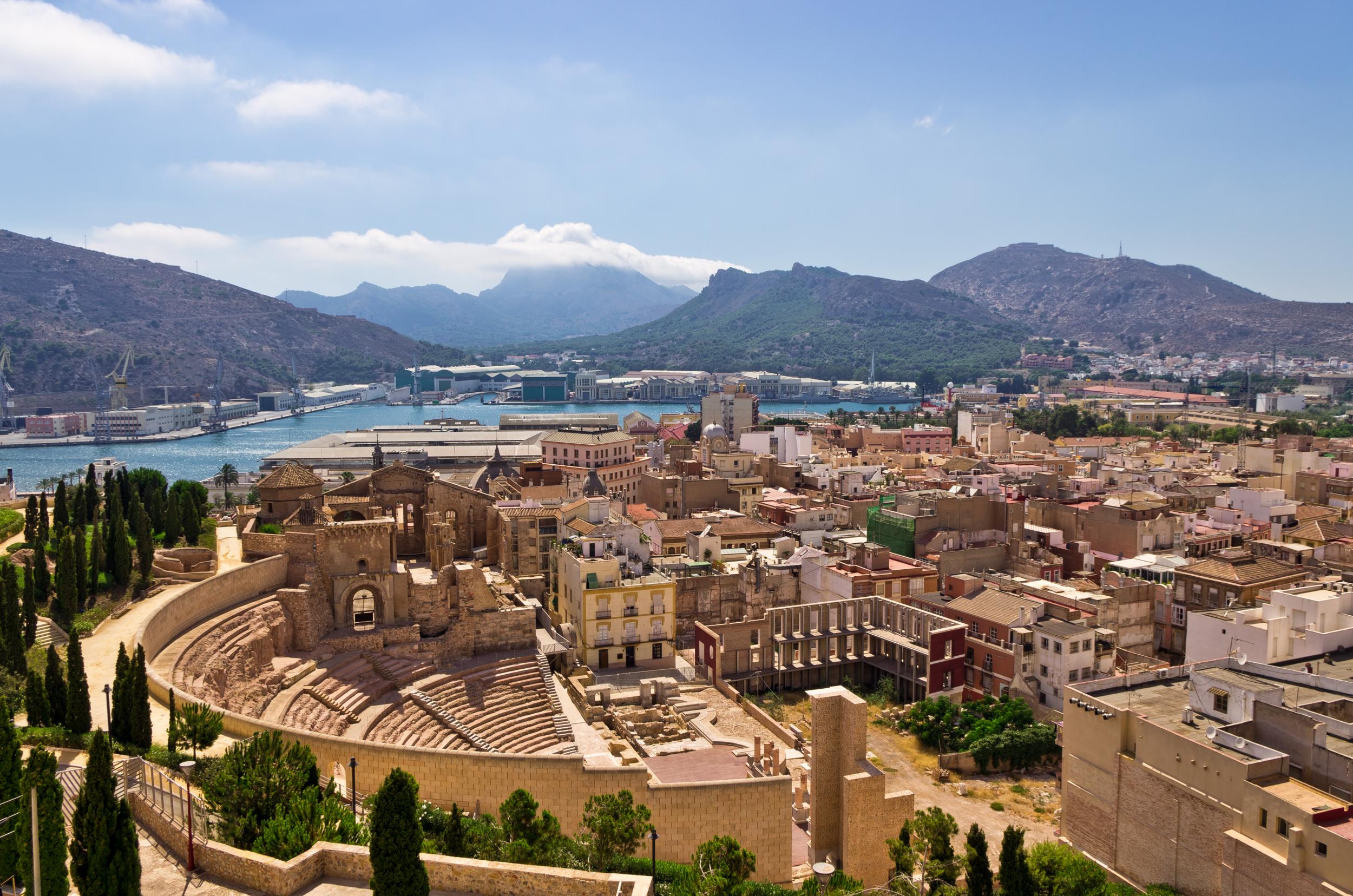
Your support helps us to tell the story
From reproductive rights to climate change to Big Tech, The Independent is on the ground when the story is developing. Whether it's investigating the financials of Elon Musk's pro-Trump PAC or producing our latest documentary, 'The A Word', which shines a light on the American women fighting for reproductive rights, we know how important it is to parse out the facts from the messaging.
At such a critical moment in US history, we need reporters on the ground. Your donation allows us to keep sending journalists to speak to both sides of the story.
The Independent is trusted by Americans across the entire political spectrum. And unlike many other quality news outlets, we choose not to lock Americans out of our reporting and analysis with paywalls. We believe quality journalism should be available to everyone, paid for by those who can afford it.
Your support makes all the difference.TRAVEL ESSENTIALS
Why go now?
Celebrate Spain’s Año del Modernismo 2016, the Year of Modernism, in a little-visited city with some prime some examples of early 20th-century architecture. But that is just the start. After the Spanish navy moved out of this magnificent deep-water Murcian port, the archaeologists moved in. Since then, the former naval base has been dramatically revived as a tourist hub that reveals the city’s history with a series of imaginative new attractions. The heritage of “New Carthage” makes Cartagena an ideal weekend escape, with easy access from the UK a bonus.
Touch down
Murcia San Javier airport (1) is only 20km north of Cartagena. You can fly in on easyJet (0330 365 5000; easyJet.com) from Bristol and Gatwick; on Jet2 (0800 408 1350; jet2.com) from Belfast, Leeds/Bradford, Manchester and Newcastle; and on Ryanair (0871 246 0000; ryanair.com) from Birmingham, Bournemouth, East Midlands and Manchester.
There is no direct bus from the airport to Cartagena. The main Murcia-Cartagena highway, which is served by bus, is 3km away. Otherwise a taxi will cost around €25.
If the fares to Murcia look too high, then consider Alicante and Madrid as alternative gateways; public transport from both is good, and you will arrive at either the handsome old railway station (2) or the distinctive bus station (3), topped with a tower that resembles a lighthouse.
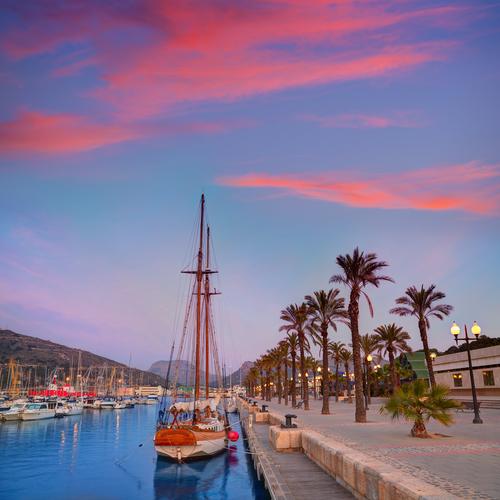
Get your bearings
Cartagena is poised between the Mediterranean and the Mar Menor, an “inland sea” on Spain's south-east coast
Most places of interest to the visitor are contained in an area enclosed by the city walls – long stretches of which are still intact. Wrapping around the old city are the broad Paseo de Alfonso XIII to the north, a strip of parkland and crooked avenue to the east, the seafront (and cruise terminal) to the south and the former naval docks to the west.
The eastern tourist office (4) (cartagenaturismo.es) is built into the city walls on the Plaza Bastarreche. The western tourist office is part of the City Hall (5) on the Plaza del Ayuntamiento, Both open 10am-2pm and 5-7pm daily except Sundays (with the lunch break beginning at 1.30pm on Sundays); the western office also opens 10am-1.30pm on Sundays.
Check in
Until the NH Cartagena (6) opened on the Plaza Héroes de Cavite (00 34 968 1209 08; nh-hotels.com), the city was short of an outstanding place to stay. The property brings boutique touches to an old naval building. Doubles typically cost €100-120, or a little more for a sea view.
The three-star Hotel Los Habañeros (7), commemorating the port’s link with the Cuban capital, is close to the city’s eastern wall at Calle San Diego 60 (00 34 968 50 52 50; hotelhabaneroscartagena.com). Premium doubles cost €85, excluding breakfast.
The two-star Pensión Balcones Azules (8) is ideally located in the old city on the corner of Calle Balcones Azules and Calle Ignacio García (00 968 500 042; email pensionbalconesazules@hotmail.es). The clean and simple rooms are available for around €60, excluding breakfast.
DAY ONE
Take a hike
Calle Mayor and its continuations, Puerta de Murcia and Carmen, extend for barely more than a kilometre north-west from the Plaza de Ayuntamiento, but are full of interest. Start at the handsome City Hall (5), then note the Casa Cervantes (9) on the same side of the street a short way up - Víctor Beltrí began work on it in 1900, one of his earliest commissions in the city. The Capitanía General (10) is the opulent former naval headquarters, dating from 1738, while just across the Plaza San Sebastían the old Gran Hotel (11) - another work by Beltrí - is the city's the most lavish Modernista monument. HIs early 20th-century work continues in Casa Pedreño (12), with a final example of the city’s devotion to fine architecture in the neo-baroque flourishes of the Casa Dorda (13).
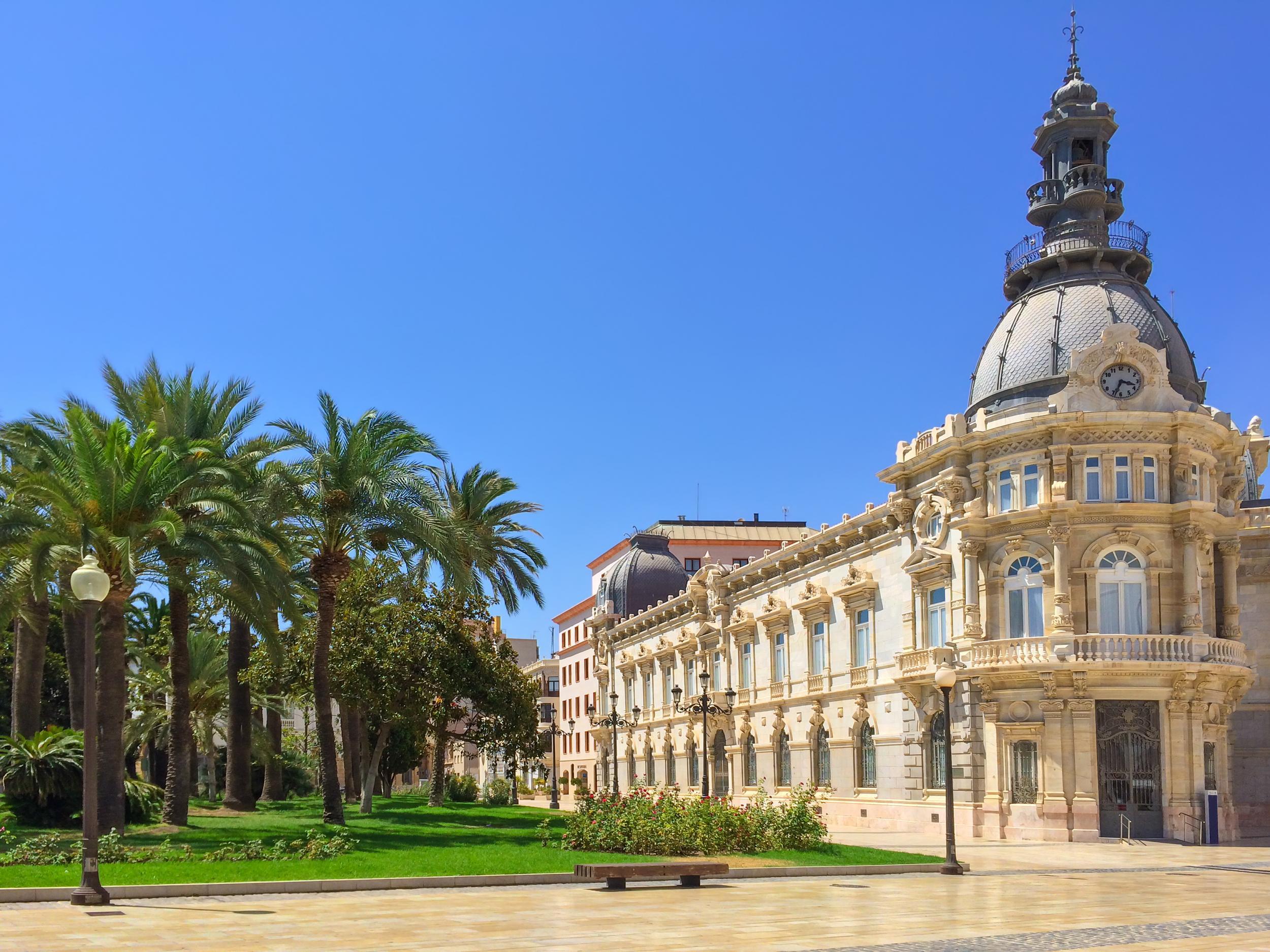
Window shopping
La Chinata (14), just back along Calle Carmen at number 33, is a delicatessen with a strong suit in extra virgin olive oil and sidelines in cosmetics. South of the muscular Artillery Headquarters (15), Calle San Fernando has some interesting gourmet locations – such as El Rincón Manchego (16) at number 34 (el-rincon-manchego.com).
The main produce market, Mercado Gisbert (17), is on Calle Gisbert. While it closes on Sundays, many other stores are open on the Sabbath so long as a cruise ship with more than 300 passengers is tied up in Cartagena.
Lunch on the run
You could assemble a picnic and enjoy it in one of the lovely squares, such as the Plaza de La Merced (18). But Cartagena has plenty of tempting lunch options, many of them offering a good-value menu del dia for €10-€12. Tucked away from the main drag at Calle Balcones Azules 12, the Cafetería El Molinete (19) offers something of the ambiance of the city before it was gentrified, and offers good-value seafood and meat dishes.
If you are happy to pay a little more, the Cibus gastrobar at the NH Cartagena (6) has an €18 menu including gazpacho, bacalao (cod) and dessert.
Cultural afternoon
Cartagena’s history stretches back well before the birth of Christ. Carthago Nova became part of the Roman empire in 209BC, and was raised to a colony in 54BC – at which point investment poured in to create a forum and the amphitheatre. The layers are only slowly being peeled back, with some superb new attractions opening in the past decade. The fascinating Roman Theatre Museum (20), whose entrance is on the Plaza de Ayuntamiento provides an excellent preview for the amphitheatre (00 34 968 50 82 07; teatroromanocartagena.org). You wander from street level into a visitor centre designed by the leading architect, Rafael Moneo. It opens 10am-8pm from Tuesday to Saturday, 10am-2pm on Sunday, closed Monday; €6.
If Cartagena needed one more attraction to put it on the map, it has arrived in the ship-like shape of ARQVA (21), the Museum of Underwater Archaeology. Its half-submerged bulk occupies a stretch of the southern waterfront, just outside the walls (00 34 968 12 11 66; museoarqua.mcu.es). Highlights include remnants of a 7th-century BC wreck of a Phoenician ship, an Islamic serving dish depicting a ship and part of the cargo of the wrecked frigate, Nuestra Señora de las Mercedes - which sank in 1804 but whose treasure the Spanish government successfully claimed back from the US in 2012. It opens 10am-9pm from Tuesday to Saturday, 10am-3pm on Sundays, closed Mondays. Admission is free on Saturday afternoons (from 3pm) and Sundays; on other days, it’s €3.
An aperitif
Cartagena has only recently started to celebrate its waterfront, but since the marina was completed a string of bars has opened up along the shore - with Coyote (22) in the middle the most popular, if not the most authentic. For a more traditional tapas bar, just wander along Calle Mayor, where Cerverceria La Mejillonera (23) at number 4 (00 34 968 52 11 79) is among the best-value choices.
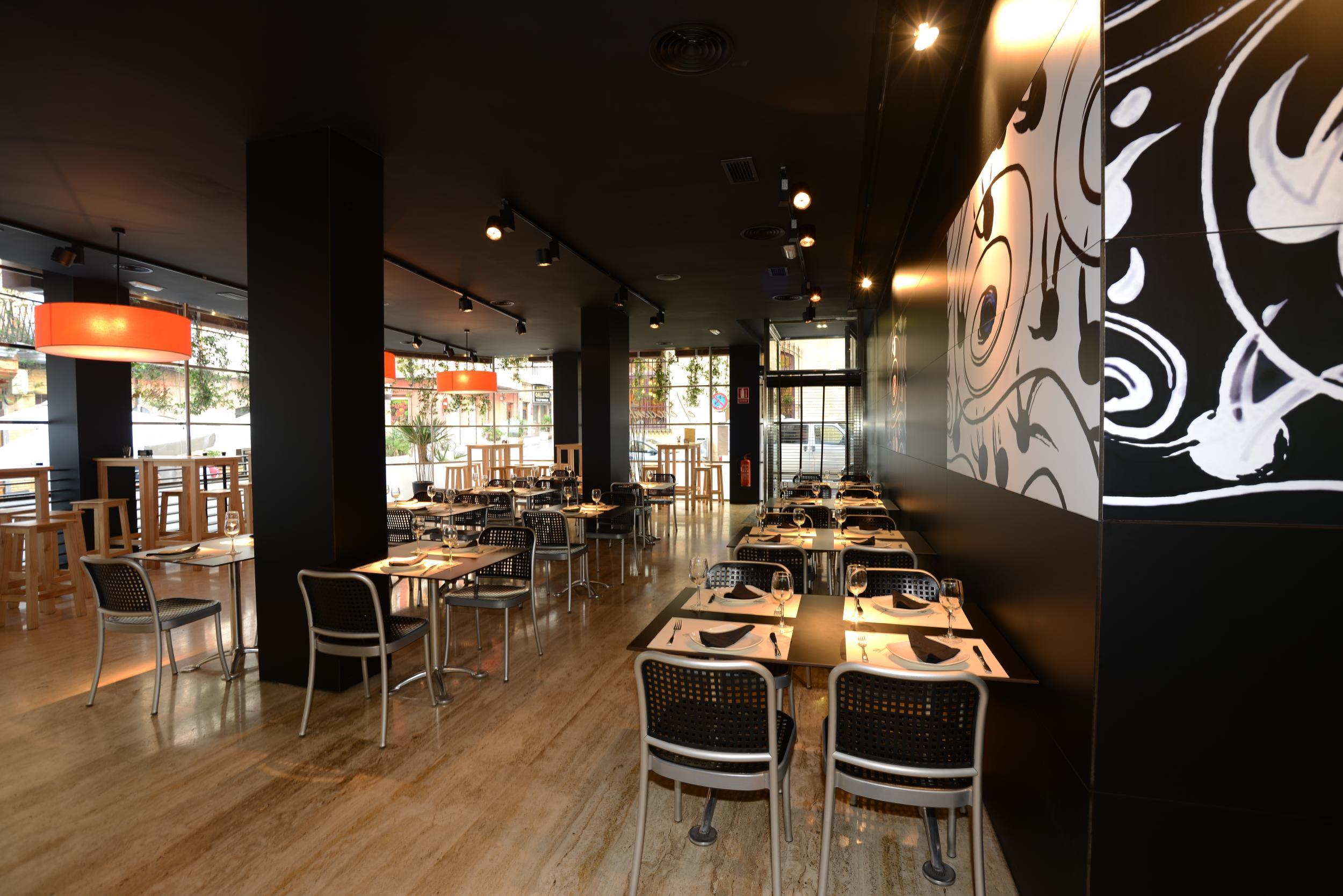
Dine with the locals
Infiltrating the old colonnade at Calle del Parque, 2, Taberna A La Brasa (24) offers a €20 tasting menu that includes salad, paella, a mixed grill and a drink. El Encuentro (25), on the corner of Calle Canón and Principe de Vergara, offers squid (€11) and a range of paellas, as well as the best steaks in town (elencuentrocartagena.com).
DAY TWO
Sunday morning: go to church
At the Centre for the Interpretation of the Punic Rampart (26), an imaginatively conceived structure has been placed over excavations of a stretch of Carthaginian city wall created that predates the Roman era. You can roam around the structure - and discover the crypt of a late 17th-century Christian hermitage that nests within the rampart, complete with burial niches. It opens 10am-8pm daily, admission €3.50.
Take a view
On Calle Gisbert, an elevator (27) will lift you for a fare of €1 to the Castillo de la Concepción (28) – but before you explore the castle, take time to appreciate the view to the east from the top station of the lift, which includes the old bullring.
Walk up the zig-zagging path to the castle, which opens 10am-8pm daily, admission €3.75. The highest point in the city was originally the location for a Roman temple dedicated to the god of health, Asklepio, a Moorish citadel and, after the reconquest, the 13th-century castle bullt by Alfonso X. Climb to the top, both to admire the engineering prowess and more particularly the outstanding panorama – including the mighty headlands that protect the harbour, and which attracted waves of colonisers. During the Spanish Civil War, the air-raid siren was sounded from here (an air-raid shelter is adjacent to the ground station of the elevator).
Then walk west along the path that winds past the Roman Theatre (18), yielding even more views, and descend the steps to ground level.
Out to brunch
You emerge close to Plaza de Ayuntamiento, where the Chocolatería Valor (29) offers the indulgence of chocolate and churros (chocolateriasvalor.es). The best location for this Spanish treat, thought, is Churrería Tofi (30), on the corner of Calle Angel Bruna and Muralla de Tierra (churreriatofi.es). Note that it takes a break between 12.15-5.15pm each afternoon.

Take a ride
The Barco Turístico departs from the waterfront (31) each hour from 11am to 3pm, then half-hourly from 4.30-7.30pm for a trip around the harbour, providing a fresh dimension on the city and the chance to see the old submarine pens and the historic lighthouse (32) that guards the approach to Cartagena; fare €5.57 (cartagenapuertodeculturas.com).
A walk in the park
The Molinete Archeological Park (33) is a 2012 addition to the cultural repertoire (00 34 968 50 00 93; cartagenapuertodeculturas.com). From the entrance on Calle Paraíso, you can roam across a hillside than includes relics of the Roman sanctuary, then study the meticulous archaeology that has laid bare the forum. The archaeological park has a canopy over the skeleton of the thermal baths and the atrium, together with some outstanding mosaics. It opens 10am-7pm daily except Tuesday,
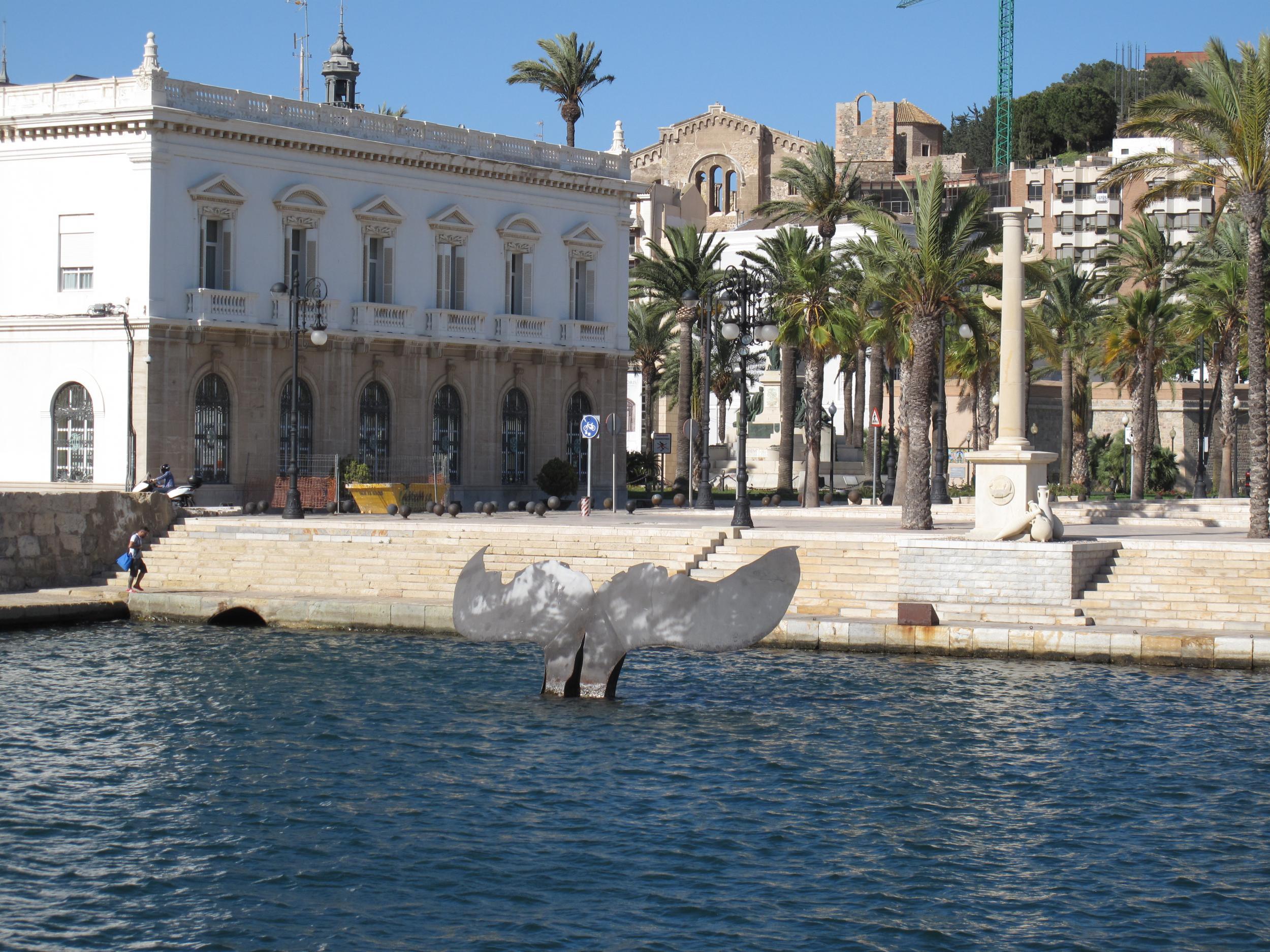
Icing on the cake
Impressive street sculptures and military monuments are strewn around the city, including an old fighter plane on the eastern side, the Casa de Mar (34) to the south-east and a monument to Spanish struggles in Cuba in the Plaza Héroes de Cavite (35). The theme continues out into the water from here, in the shape of the tail fin of a whale.
Join our commenting forum
Join thought-provoking conversations, follow other Independent readers and see their replies
Comments